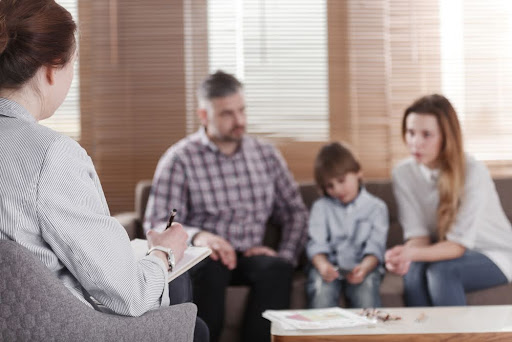If you or a family member is struggling with a serious mental health problem, then family therapy can offer a solution. Unlike a typical therapy session with one family member, mental health professionals will be able to speak with a patient’s parents, siblings, or children.
This more holistic approach offers a number of distinct advantages over individual therapy and other methods that can make it more beneficial for an individual struggling with a serious mental health condition. Let’s take a look at the ways family therapy can benefit mental health and why it might be a good fit for you or someone in your family.
Versatility
Family therapy sessions are capable of addressing a wide range of mental health concerns. Those struggling with depression, bipolar disorder, grief, and many other issues negatively impacting their mental health can make strides with the help of their family and a professional therapist. By considering the family as a whole rather than isolating individuals, family therapy recognizes the interdependent nature of family relationships and how these relationships can either contribute to or alleviate mental health problems.
There are also different varieties of family therapy, including structural family therapy, systemic family therapy, and functional family therapy, which are utilized to improve family functioning and resolve conflicts. Regardless of the specific mental health struggles an individual is dealing with, these therapy sessions demonstrate how the collective family environment can play a pivotal role in each other’s emotional health.
Communication
Openly discussing mental health conditions can be a stressful and painful experience. However, identifying the root causes of one’s mental health struggles and other factors detrimental to their well-being is vital for making progress. With family therapy, individuals will have a safe environment to discuss their problems without fear of being judged.
A family therapist works to strengthen family bonds and improve the overall family structure, directly impacting the emotional and physical health of individuals. During a therapy session, family members will have the opportunity to be open about their personal challenges, hopes, and weaknesses. This open communication facilitates a stronger understanding of each individual’s personal life in ways that may not have been possible before.
Through the process of sharing experiences and feelings in a controlled setting, family members learn new ways of interacting and supporting one another, which can lead to significant improvements in mental health conditions. This focus on improving family dynamics ensures that individuals feel heard and understood within their family system, which is foundational for emotional healing and resilience.
Goal-Focused
Unlike other types of therapies, family therapy can revolve more around solving specific problems that are impacting their mental health. By employing strategies from strategic family therapy and other family therapies, therapists guide families in identifying specific issues and developing concrete strategies to address them. This approach allows for a more targeted intervention, where family interventions are designed to alter dysfunctional family interactions and promote healthier coping skills.
Family therapists work with the entire family to understand mental health conditions and to devise a treatment plan that addresses the unique needs of the family system, ensuring that interventions are practical and applicable to real-life situations. Such a focused approach not only alleviates symptoms of mental illness but also empowers family members with the tools necessary for sustained improvement in family relationships and individual well-being. As such, this problem-based treatment can help those struggling with mental conditions identify specific issues and develop more tangible goals for overcoming them.
Strategizing
The benefits of family therapy for mental health extend well beyond each session. During their time with a mental health professional, family members can learn techniques and discuss strategies they can use while at home to counter potential mental health triggers and other related issues. These can include helping each other reduce stress, calm down, and process conflict and extreme emotions in more thoughtful ways.
Additionally, through skills training — focused on enhancing parenting skills — coping mechanisms, and communication strategies, family therapy sessions contribute to building a stronger, more cohesive family unit. This collaborative approach not only addresses the immediate concerns presented by mental health conditions but also lays the foundation for long-term resilience and improved overall physical health of the entire family, showcasing the comprehensive benefits of family therapy work in mental health services.
To Learn More About Family Therapy and Mental Health, Visit Hope Springs Behavioral Health Today
At Hope Springs Behavioral Health, we help individuals struggling with mental health to regain control of their lives with the assistance of our family therapy services. Family therapy is included in our IOP model of care.
In addition, we also offer traditional therapy services, group therapy, and psychiatric services for patients in Bucks and Montgomery County. For additional information and to start planning a therapy session, contact us today.


